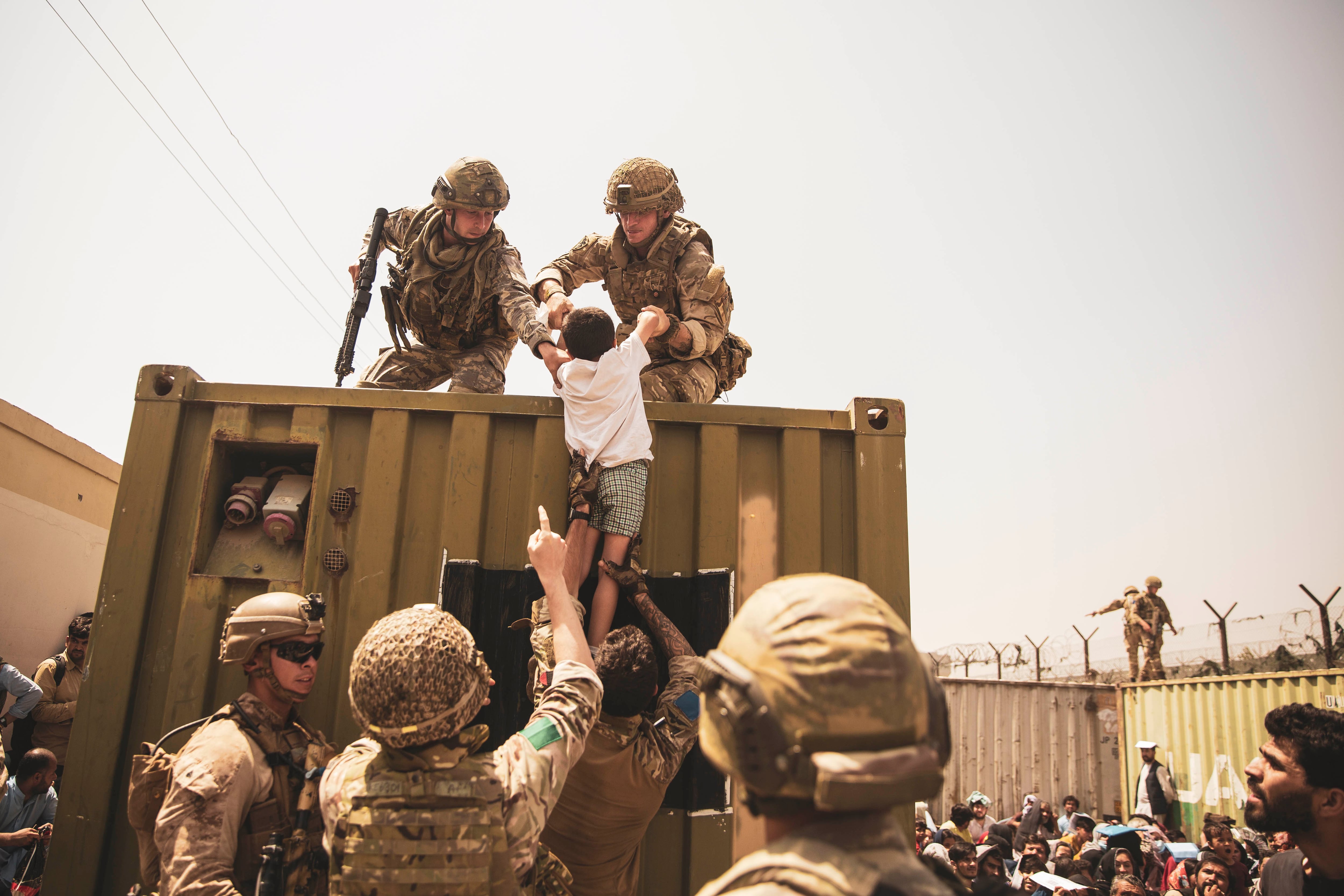With 5,800 troops on the ground and flights leaving on average every hour, the U.S. for the first time on Sunday exceeded its previous daily evacuation ceiling, flying out just under 11,000 Americans, third-country nationals and vulnerable Afghans, the deputy director of the Joint Staff for regional operations told reporters on Monday.
This ramp-up, above the previous 9,000 estimated capacity, comes as the last planned week of presence in Afghanistan quickly burns up. To do it, troops on the ground have slightly expanded their security perimeter outside the airport, in addition to a carrying out a handful of escorts on foot or by helicopter to get groups through the gates.
“Without getting into tactical details here ... we are very interested in making sure that access to the airport remains as fluid as possible, particularly for American citizens trying to get in ― as well as our special immigrant visa applicants,” Kirby said.
To do that, there have been a limited number of people escorted from the crowds outside the airport, as well as two helicopter transfers, he confirmed. There have also been discussions of setting up U.S. checkpoints in the city to help flow people toward the airport.
“You can imagine, thus far and going forward, it does require constant coordination and deconfliction with the Taliban,” he added.
A security incident on Monday resulted in the death of one Afghan soldier, Taylor confirmed, but no U.S. or coalition casualties. Officials couldn’t say whether the instigator was affiliated with the Taliban.
RELATED

Meanwhile, Taylor said, 25 C-17 Globemasters, three C-130 Hercules and 61 civilian flights flew out 16,000 evacuees on Sunday, roughly 11,000 of those on military transport
All told, 42,000 have evacuated Kabul since late July, with 37,000 since the Taliban moved into the city on Aug. 15. To accommodate that higher flow, the U.S. has partnered with Qatar, the United Arab Emirates, Kuwait, Spain, Germany and Italy to use U.S. bases as way stations for evacuees needing special immigrant visa processing.
Kirby wouldn’t say whether there are plans in plan to halt entry to the airport to give the Marines and soldiers security the airport time to pack up and leave by Aug. 31. He also didn’t say whether an extension of that deadline is on the table.
Kirby acknowledged public Taliban statements that they will not accept a withdrawal that extends into September.
“The focus is trying to do this the best we can by the end of the month,” Kirby said. “And as the secretary said ... if he needs to have additional conversations with the commander in chief about that timeline he’ll do that, but we’re just not there yet.”
Meghann Myers is the Pentagon bureau chief at Military Times. She covers operations, policy, personnel, leadership and other issues affecting service members.



